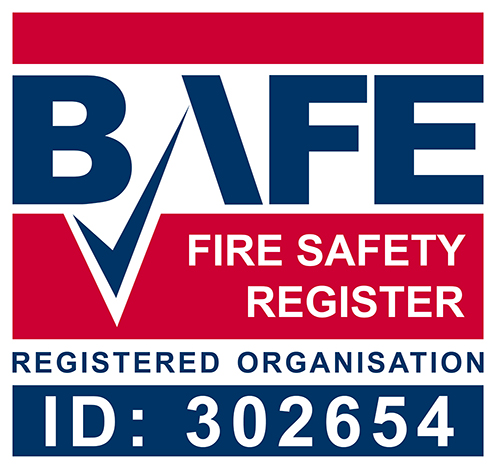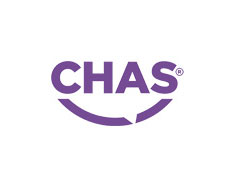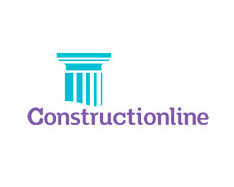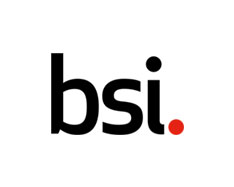As we navigate an increasingly connected world, CCTV has become a familiar presence in our daily lives, whether in homes, businesses, or public spaces. Their widespread use signifies their pivotal role in enhancing security, deterring crime, and providing valuable evidence when necessary. However, it’s vital to understand that this isn’t a realm free from regulation and oversight.
In the UK, CCTV rules and regulations exist to balance the necessity of surveillance and the preservation of individual privacy rights. This blog post aims to delve into these UK-based guidelines, breaking down the legalities of CCTV usage to aid individuals and businesses in ensuring their surveillance practices are lawful, respectful, and effective. Whether you’re a homeowner looking to safeguard your property, a business owner aiming to secure your assets or an individual curious about your rights, understanding these regulations is key.
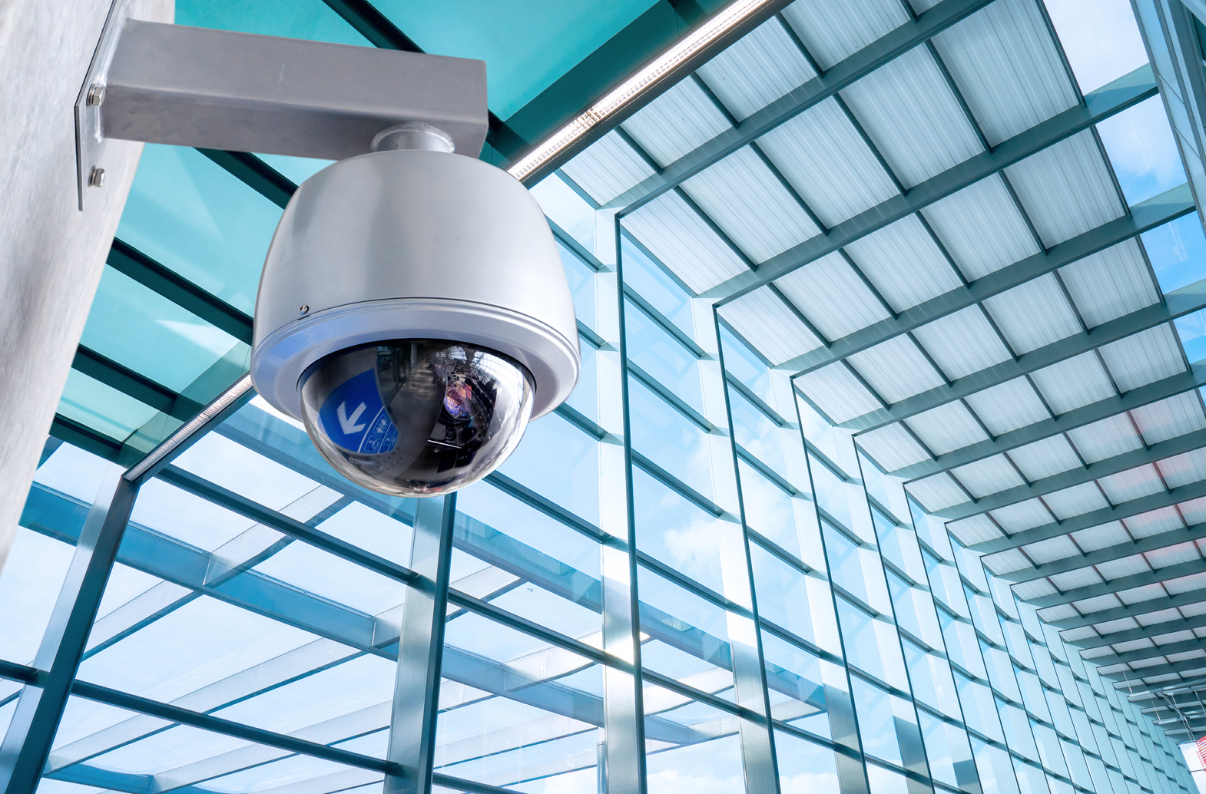
The General Data Protection Regulation
In CCTV surveillance, a significant regulatory measure is the General Data Protection Regulation (GDPR), which came into effect across the EU (including the UK) in May 2018. Now, despite the UK’s departure from the EU, the principles of GDPR have been absorbed into UK law under the UK GDPR and Data Protection Act 2018, ensuring these robust data protection standards continue to be upheld. This legislation concerns “personal data” and how organisations process it. In the context of CCTV, any footage capturing identifiable individuals falls under this umbrella of personal data, placing it firmly under GDPR’s jurisdiction.
The key provisions of GDPR relevant to CCTV usage revolve around the notions of lawful, fair, and transparent processing. For example, if you’re using CCTV, you must have a legitimate reason for doing so – like deterring crime – and make it explicitly clear that surveillance is occurring, hence those familiar CCTV signs. Furthermore, you must ensure the data captured (i.e., the footage) is securely stored and handled, only kept as long as necessary and not used for purposes other than originally collected for.
The Data Protection Act
In addition, the Data Protection Act (DPA) 2018 sets out the framework for data protection law in the UK, outlining the guidelines for managing personal information. Its applicability extends to CCTV cameras, too, as they often capture personal data, particularly in instances where individuals can be recognised within the footage.
Under the DPA, any entity responsible for controlling and processing data, known as the ‘data controller’ (including those overseeing CCTV operations), has certain obligations to meet. They must ensure that data processing is done lawfully, transparently, and for a specific purpose. Once that purpose is fulfilled, the data should no longer be retained. People who are filmed (the data subjects) have rights too; they should be informed that they’re under surveillance and may request access to the footage. Compliance with the DPA is overseen by the Information Commissioner’s Office (ICO), which can issue hefty fines for violations. Understanding the DPA is essential for anyone involved in CCTV operation, as it helps strike the delicate balance between surveillance for safety and preserving individual privacy.
Can I Install CCTV at Home?
As a homeowner, you may wonder, “Can I install CCTV at my residence?” The answer is yes; you can install CCTV cameras at home to safeguard your property. This falls under the ‘household exemption’ in the Data Protection Act, which means that if you’re using CCTV cameras for personal, domestic purposes (like monitoring your home for security), you aren’t generally required to adhere to the full scope of the DPA and GDPR.
While the rules may be less stringent, you must remember others’ privacy rights. For instance, you should aim to limit the range of your cameras so that they don’t unnecessarily capture images of your neighbours’ properties or public spaces, such as the pavement or street. If your CCTV system captures areas beyond your property, you must comply with data protection laws. It’s a delicate balance between maintaining security and respecting privacy, and as the adage goes, “Just because you can, doesn’t mean you should.” It’s always best practice to consider the potential implications and to err on the side of caution.
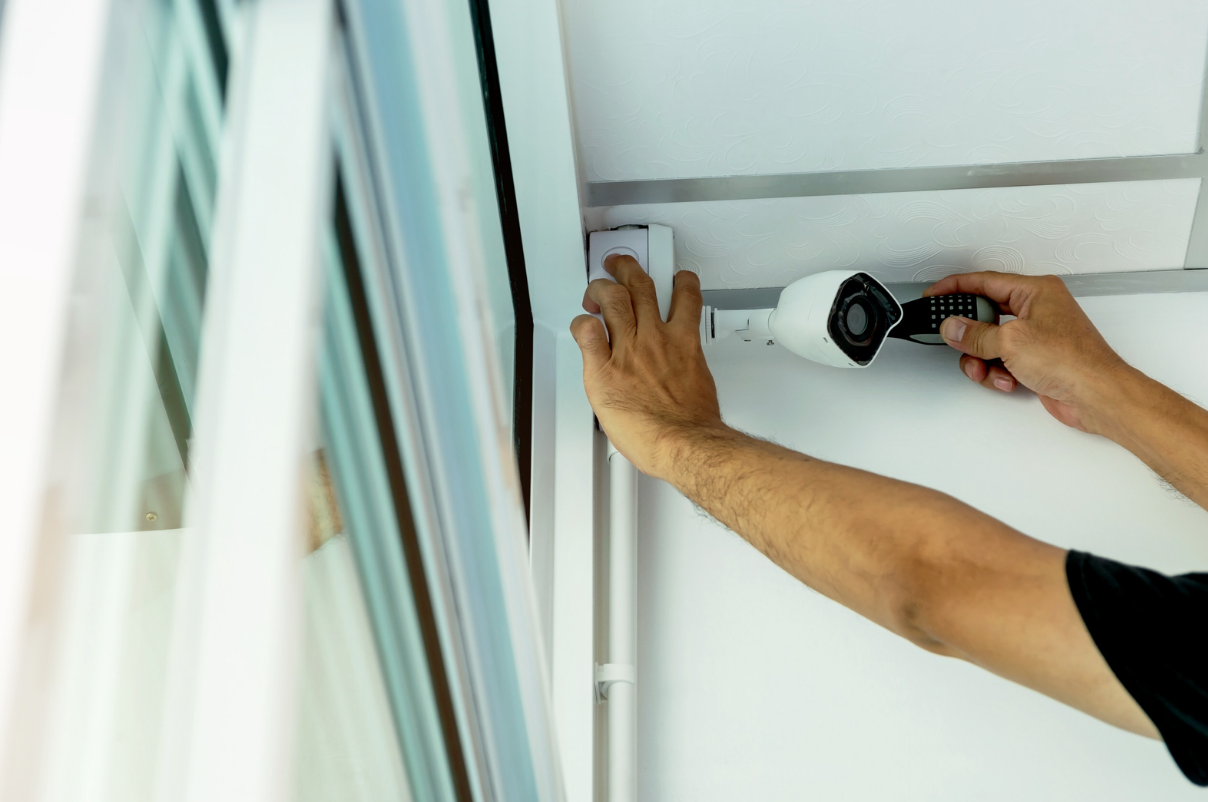
Can I install CCTV on Commercial Property?
If you’re a business owner, the prospect of installing CCTV on your commercial property has probably crossed your mind. After all, it’s a tried and tested method to deter crime, ensure safety, and even monitor productivity in some instances. In the UK, you can install CCTV on your business premises, but such systems are more stringently regulated than residential use. In short, commercial usage doesn’t enjoy the ‘household exemption’ that personal use does.
Complying with the Data Protection Act 2018 and the GDPR is an absolute must for commercial properties. These laws require you to notify people that they’re under surveillance by displaying clear signs stating that CCTV systems are in use. Additionally, you must limit the invasion of privacy as much as possible. This means using the CCTV system for its intended purpose only and ensuring the data or footage isn’t misused or kept longer than necessary. You must also handle subject access requests properly; people have a right to see footage of themselves if they ask for it. Non-compliance can result in substantial penalties, so it’s crucial to be well-versed in these regulations and ensure you meet the requirements.
How do I Comply with the DPA? Laws, Regulations And Guidelines To Follow For Home CCTV
As a homeowner, ensuring your home CCTV complies with the Data Protection Act (DPA) is crucial, especially if you’re capturing images beyond your property boundary. Here’s the lowdown: you’re generally safe if you only record within your premises. But, if you capture images outside your property, that’s when the DPA could come into play.
Are You Only Recording Footage Of Your Property?
You’re typically not subject to DPA rules if you only record footage within your property. However, this doesn’t mean you can do as you please. The Information Commissioner’s Office (ICO) suggests respecting others’ privacy even within your premises. For instance, it’s good practice not to point your cameras towards your neighbours’ windows or gardens. Keeping the recorded footage secure and not sharing it is also essential – that’s just good neighbourly behaviour!
Will You Be Recording Footage Outside Your Property?
Now, here’s where it gets a bit trickier. If your CCTV system captures images beyond your property, like your neighbour’s garden, public footpaths or roads, then you’re treading into DPA territory. According to the ICO, this generally falls under personal or household purposes, and you must still comply with DPA. This means informing your neighbours and anyone who might be captured by your CCTV that you’re recording them, showing clear signs that CCTV is in operation, and only keeping the footage for as long as necessary. And, of course, be prepared to provide people with their recorded footage if they request it.
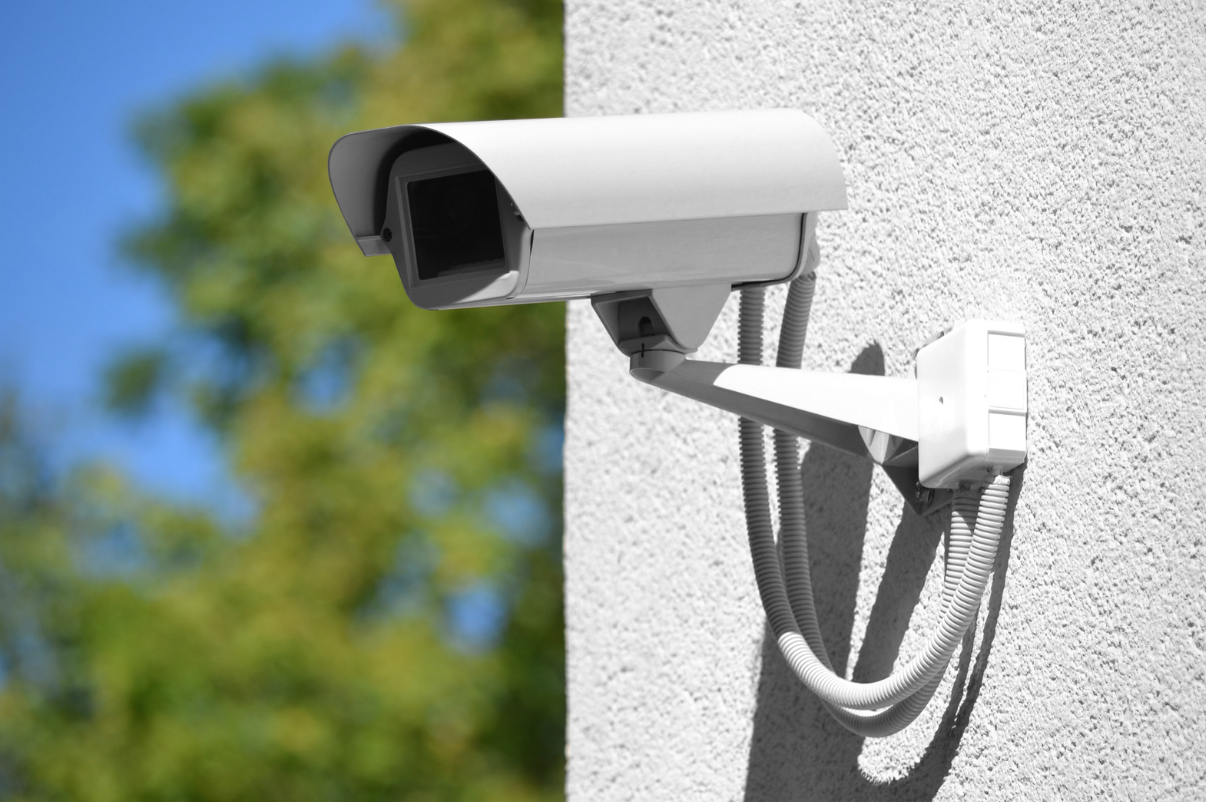
Using CCTV Responsibly
Using CCTV at home can be a powerful way to enhance your security, but it’s essential to do it responsibly. Responsible CCTV usage is about striking the right balance between security and privacy. So, let’s go over some key ways to do this.
Register Your System
First, you should consider registering your CCTV system with the ICO. It’s not obligatory for home systems that focus solely on your property, but registration is a wise move if you’re capturing any footage beyond your borders. It shows that you’re proactive about data protection and helps you get up to speed on how to use your system to respect other people’s privacy.
Let Your Neighbours Know
If your cameras capture any part of the communal areas or other properties, letting your neighbours know about your CCTV system is polite and legally required. You can do this in a friendly chat or a written note. Make sure you explain why you have the system (for security, not for snooping!) and assure them that you’ll use the system responsibly. It’s all about creating an atmosphere of trust, right?
Avoid Audio Recording
You might not know that it’s generally better to avoid audio recording unless it’s essential for your security. Audio recording can be seen as particularly intrusive and sometimes tough to justify under the DPA. So, unless you can demonstrate a compelling reason to record audio, switching this feature off is best. Think about it this way: would you like your casual conversations recorded without your consent? Probably not, right?
Regularly Delete Footage
Lastly, don’t hoard CCTV footage. The ICO recommends that you should only keep recorded footage for as long as necessary, usually no longer than 30 days. Regularly deleting your footage ensures you’re not retaining unnecessary personal data, which helps you stay in line with DPA rules. Plus, let’s be honest, who has the storage space for endless hours of footage anyway?
Installation By A Reputable Company
Now, let’s talk about who’s setting up your CCTV system. It might be tempting to try and DIY your security system installation, but it’s worth considering having it done by a reputable company. Not only do they have the technical know-how to ensure everything is installed correctly, but they’ll also have a good grasp of privacy laws and can set up your system to respect them. Many reputable companies will also offer regular maintenance and checks, which can be a godsend if you encounter technical glitches.
Regular Maintenance
While we’re on upkeep, let’s discuss the importance of regular maintenance. CCTV systems need regular check-ups to prevent unintentionally capturing areas they shouldn’t. Over time, cameras can shift due to weather conditions or accidental bumps, leading to potential privacy invasions. So, make it a habit to regularly check your camera angles and ensure they’re still respecting your neighbours’ privacy.
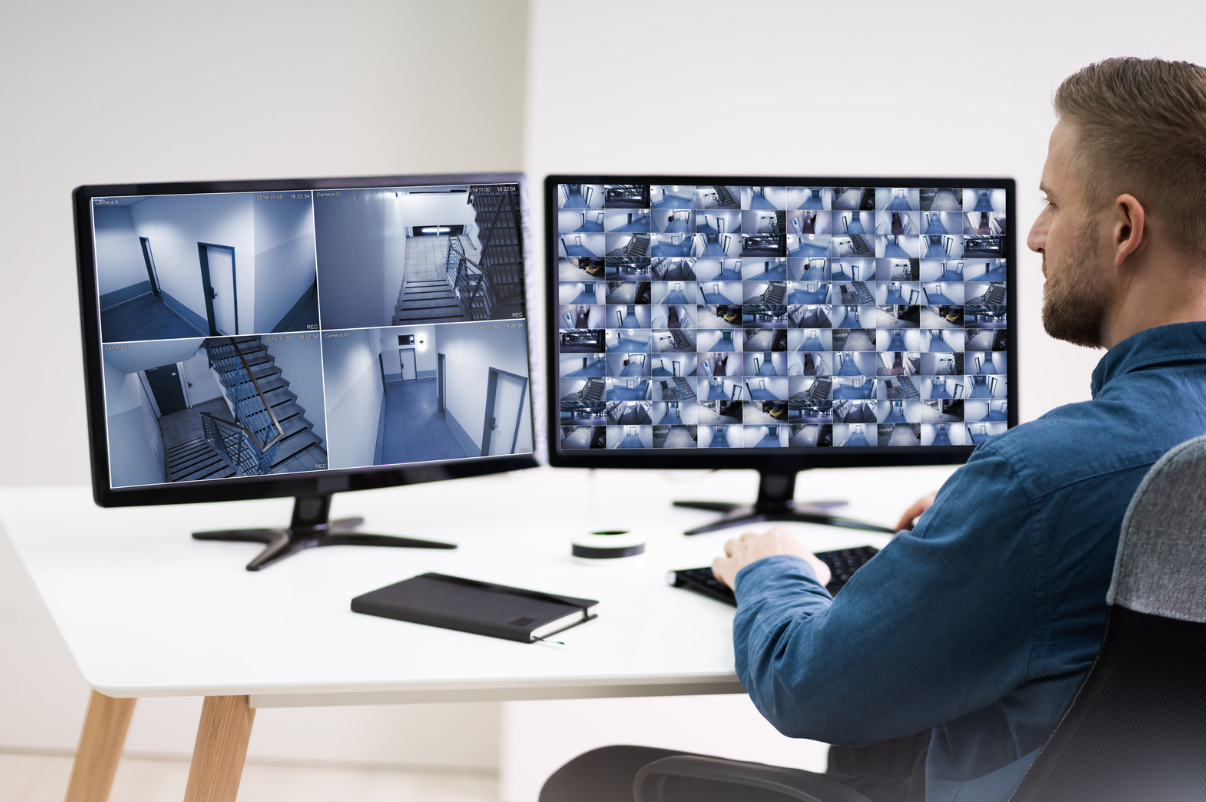
What Happens If You Don’t Comply With Regulations?
You could face a fine if someone complains about your CCTV system and the ICO determines that you’re not following the DPA. In more severe cases, you could even end up in court. And it’s not just about the potential legal consequences; failing to comply with CCTV regulations can seriously damage your relationships with your neighbours and community. We all want to live in a friendly, respectful area. So, don’t think of compliance as a burden. It’s a way of ensuring we can all enjoy our privacy and feel secure in our homes.
We hope this blog has helped you understand more about CCTV rules and regulations. If you’re ever in doubt, consider calling in the professionals. With years of experience and expertise, they can help you navigate the complexities of CCTV regulations and ensure that your system is effective and legal. Whether it’s installation, maintenance, or just simple advice you’re after, Clear Sound Security is here to help. With our guidance, you can rest easy knowing that your home is secure, your system is compliant, and your neighbours are comfortable. Because at the end of the day, that’s what CCTV is really all about, isn’t it?
Related article: What Does CCTV Stand For?
CCTV FAQs
We’ve answered some of the most frequently asked questions about CCTV rules and regulations below:
Is CCTV covered under the Data Protection Act (DPA)?
Absolutely, the DPA indeed covers CCTV usage. While domestic CCTV systems that only capture video footage within the boundaries of the homeowner’s property may be exempt, any system that records areas beyond these boundaries, such as communal areas, public footpaths, or neighbours’ properties, must comply with the DPA.
Can I watch my staff on CCTV?
Watching staff on CCTV can be a tricky area. As a CCTV operator, you can use CCTV to monitor staff in the workplace, but you need to make sure it’s justified and doesn’t infringe on their privacy rights. It’s crucial to let your employees know that they’re being monitored and why. This generally means providing clear signs that CCTV is in operation and setting out your CCTV policy clearly for all staff to read.
When can I hand over the CCTV footage?
As a general rule, you should only hand over CCTV footage if it’s necessary to do so for the purposes for which it was recorded. This could be, for example, to law enforcement agencies investigating a crime. It’s crucial to ensure that you comply with the DPA and other CCTV laws when handing over video footage.
Can you give CCTV footage to anyone?
No, not just anyone. You need to be very careful about who you give CCTV footage to. The DPA restricts you from providing CCTV footage to third parties unless it’s necessary to prevent or detect crime, or if the law specifically requires it. This is to protect the privacy rights of the individuals captured in the footage.
Can Neighbours complain about CCTV?
Yes. If your domestic CCTV captures images outside your property and your neighbours feel their privacy is infringing, they have every right to complain to the ICO. That’s why it’s important to use your CCTV system responsibly, ensuring that it adheres to CCTV laws and doesn’t unnecessarily infringe on anyone else’s privacy.


